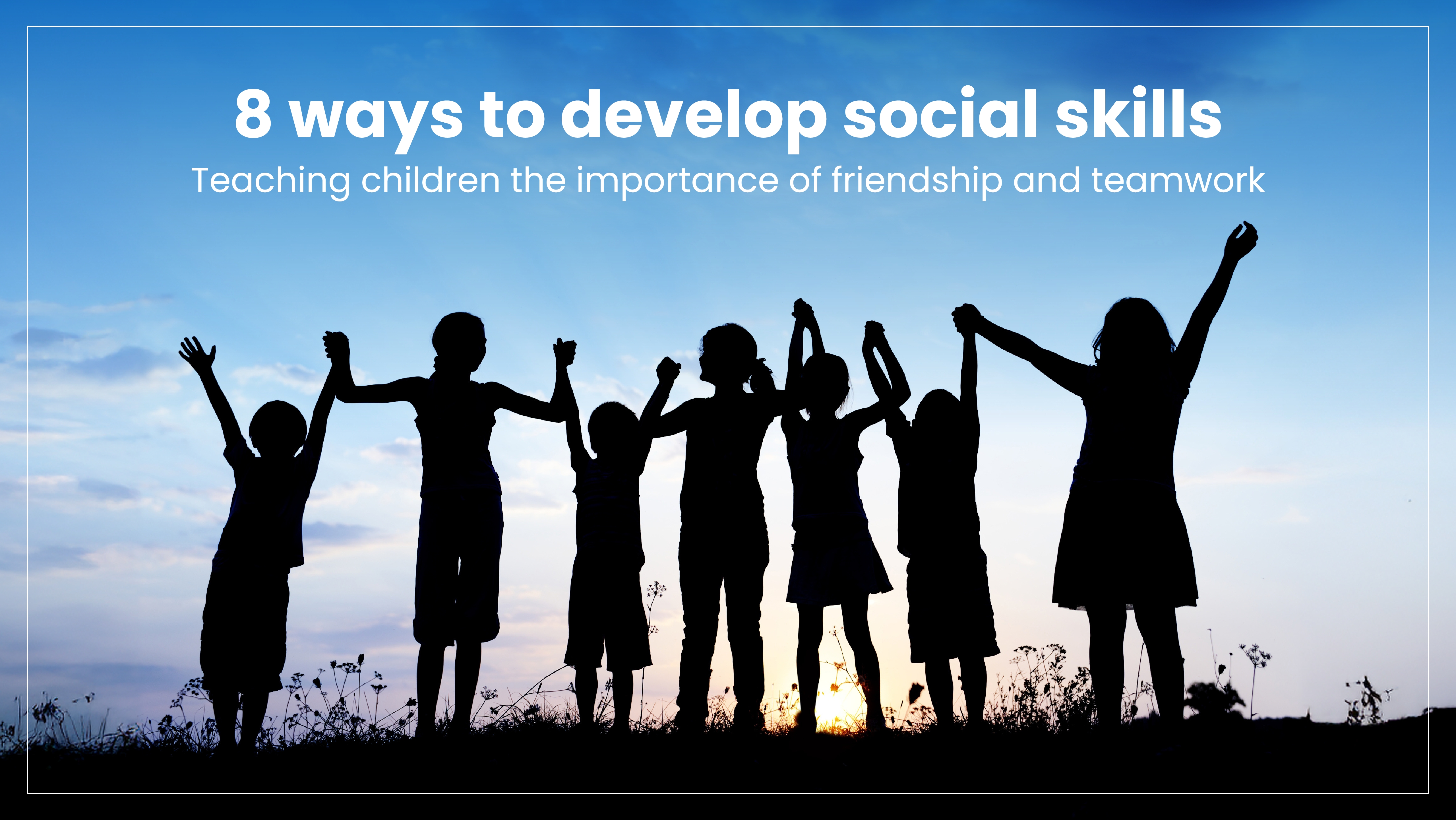In today’s world, developing social skills in children is vital for their growth and success. While academics often take centre stage, the importance of friendship and teamwork should not be overlooked. These social skills form the foundation of a child’s emotional and mental well-being. Learning to interact positively, collaborate, and build strong friendships greatly influences a child’s ability to thrive, both in school and in life.
Why Social Skills Matter: The development of social skills is crucial as children grow. These abilities enhance their communication, build self-esteem, and foster emotional intelligence. When children understand the value of teamwork and cultivate meaningful friendships, they are better prepared to face challenges. Whether in academic settings or future professional environments, working well with others significantly impacts a child’s future success.
Let’s look at 8 ways to help develop social skills in children:
1. Encouraging Early Social Interaction: From an early age, children benefit from being exposed to social environments. Playdates, group activities, and team sports help develop social skills by encouraging interaction and collaboration with peers.
2. Teaching Empathy: Empathy is at the core of friendship and teamwork. Parents and teachers can guide children in understanding the emotions of others by encouraging open conversations about feelings and experiences.
3. Promoting Positive Communication: Effective communication is a key component of successful relationships. By teaching children how to express themselves clearly and listen attentively, they become better equipped for both personal and professional interactions later in life.
4. Fostering Healthy Friendships: Children naturally form bonds, but helping them understand the importance of loyalty, kindness, and patience helps develop meaningful and lasting friendships. Encouraging them to resolve conflicts peacefully is also important for maintaining strong relationships.
5. Modelling Teamwork: Parents and teachers should model good teamwork by demonstrating cooperation in daily activities. Children who witness adults collaborating and working towards common goals are more likely to replicate these behaviours.
6. Engaging in Group Activities: Group projects and team-based activities, such as sports or school assignments, teach children the value of working together. These activities encourage teamwork and improve problem-solving and critical-thinking skills.
7. Building Self-Esteem through Achievement: When children feel confident in their abilities, they are more likely to engage positively with others. Acknowledging their successes in group settings reinforces their sense of belonging and encourages them to contribute to future team efforts.
8. Reinforcing Social Skills at Home: While schools like Narayana offer structured opportunities for teamwork and friendship development, these values must also be nurtured at home. Parents can reinforce these lessons by encouraging participation in clubs, sports, and other social activities.
At Narayana Schools, we place a strong emphasis on fostering friendships and encouraging teamwork through collaborative learning. Our classrooms and activities are designed to promote inclusivity, respect, and cooperation. By teaching children how to work together, we help them develop essential life skills that will serve them well into adulthood.
Developing social skills such as friendship and teamwork is crucial for a child’s overall growth. These skills shape how children interact with others and contribute to their long-term success and happiness. At Narayana, we are dedicated to helping children build strong relationships and work collaboratively so that they can confidently chase their dreams, because at Narayana, your dreams are our dreams.


Stay connected, stay informed, and thrive with Narayana Educational Institutions!
